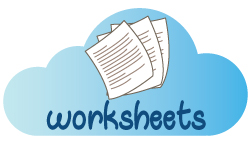What Is a Synonym? | Definition & Examples
- English Lessons >
- Synonyms
Overview of Synonyms:
- Introduction to Synonyms
- What Is a Synonym?
- What Is an Antonym?
- Synonyms in Sentences
- Why Are Synonyms Important?
- Synonyms Help Paint a Picture
- Synonyms Help Enhance Exam Scores
- How to Learn Synonyms
- Not All Synonyms Are Synonymous
- Understanding Denotations and Connotations
- Informative vs Creative
- Synonyms - Quiz
"Intoxicated? The word did not express it by a mile. He was oiled, boiled, fried, plastered, whiffled, sozzled, and blotto."
- P.G. WodehouseIntroduction to Synonyms
The beauty of the English language is that we can say one thing in many ways. This aspect of the language is so helpful while we speak or write that we don't have to sound repetitive and can use a variety of words to enhance the effect of our content. Consider the word "happy" for example. There are tens of words that mean "happy" such as "elated", "delighted", and "exhilarated"; so, we don't need to feel just happy every time we are happy, but we can be "pleased" or "jubilant" and be as equally happy.
What Is a Synonym?
Synonyms are words or phrases that have the same or similar meanings. The term "synonym" has its origin in Ancient Greek; syn means with and onoma means name. Today, we use synonyms every day, and they are there in most parts of speech, such as nouns, verbs, adjectives, and adverbs.
Examples:
small - little
proof - evidence
strong - powerful
true - correct
tidy - clean
rest - relax
hardly - barely
What Is an Antonym?
The synonym learning is never complete without understanding antonyms. Antonyms are words that have the opposite meanings. In other words, antonyms are the opposite of synonyms.
Examples:
abundant – sufficient (synonyms)
abundant – scarce (antonyms)
ancient – antique (synonyms)
ancient - modern (antonyms)
beautiful – pretty (synonyms)
beautiful – ugly (antonyms)
Synonyms in Sentences
A. Because the test was very easy, all learners did very well and passed it with good grades.
B. As the examination was extremely straightforward, all students performed amazingly well in it and cracked it with excellent grades.
A. Tony was glad to have a fancy toy, and he showed it to all his friends.
B. Tony was proud to possess an extravagant toy, and he flaunted it to all his chums.
Take a look at how the sentence B in both cases scores better by using synonyms for some of the dull words in the sentence A. Words like "test", "very", "good", "fancy", "have", and "show" are replaced by "examination", "extremely", "excellent", "extravagant", "possess", and "flaunt".
Why Are Synonyms Important?
Because the words we choose to use in a sentence go a long way in communicating our ideas, synonyms are absolutely important. They give our language a whole new dimension by making it more meaningful, exciting, and relevant. They ring in a world of energy and liveliness to what would otherwise be a boring spell of repeated words.
Synonyms Help Paint a Picture
One of the most important aspects of synonyms is that they help paint a picture with words. For instance, when you want to tell a friend about a nice story you have just read, you could use words like "interesting", "exciting", "riveting", or "intriguing" rather than simply repeat the word "nice" and make the listener or reader feel bored.
Synonyms Help Enhance Exam Scores
Reading forms a pivotal aspect of admission tests like SAT. Often, test makers purposely paraphrase words to confuse students. A rich vocabulary made even richer with a great stock of synonyms is an effective way to pass such tests with flying colors. It’s important, though, that students make themselves conversant with synonyms spanning a wide range of parts of speech, such as nouns, adjectives, verbs, and adverbs. The best part? Not only do synonyms boost reading, they also have a great impact on speaking, listening, and writing.
How to Learn Synonyms
It's not ideal for students to simply memorize lots and lots of synonyms. A great way to boost their collection of synonyms is to first focus on two words that have the same or similar meanings and extensively research to see how the words are used in a variety of contexts. Let them then continuously and passionately use the newly acquired words in speaking and writing, so they get them right.
Not All Synonyms Are Synonymous
A common mistake that students make is to look a word up on an online thesaurus and use all the synonyms interchangeably. This practice, however, should not be encouraged. It's important for them to know which synonym to use and when. A lot of this depends on who they are speaking to or writing for. Also, the nature of work such as formal, informal, creative, or informative has a say in their choice of synonyms.
Examples:
delay - dilly-dally - procrastinate
The word "dilly-dally" is informal; so, we don't want to use it in a formal piece of writing. If we are writing an academic piece, "procrastinate" will be a better synonym idea.
Understanding Denotations and Connotations
In order for students to use synonyms correctly and effectively, they should be well-versed with denotations and connotations. Then, there are the neutral, positive, and negative connotations.
A denotation is the literal meaning of a word. A connotation is a feeling or idea suggested or implied by a word apart from its literal meaning. While learning synonyms, we are more concerned with connotations than denotations.
Examples:
young, childlike, childish
The word "young" has a neutral connotation. "Childlike" has a positive connotation, and "childish" has a negative connotation. While both "childlike" and "childish" literally mean "typical of a child", they have two completely different connotations. The word "childlike" connotes a positive quality such as trustfulness and innocence associated with a child. "Childish", on the other hand, means someone who shows the unpleasant qualities of a child: silliness, lack of rational thinking, and so on.
Examples in Sentences:
Charlie is the youngest staff member in the company.
It was very childish of Maya to refuse to give me the book.
I simply adore Grandma's childlike smile and trust.
Informative vs Creative
We don't use the same words/synonyms in creative and informative pieces of writing. Take a look at the below example about basketball:
James Naismith sparked a lot of enthusiasm among students when in 1891 he invented a new game called basketball. Soon, word spread about this newly invented game, and it became a big success. (informative)
James Naismith inspired a great deal of fervor and gaiety among students when in 1891 he introduced a game called basketball. It didn't take long before this novel game caught the country by storm and became a resounding success. (creative)
Take a Synonym Quiz Now!

Hone your skills using our free printable Synonyms and Antonyms Worksheets.

